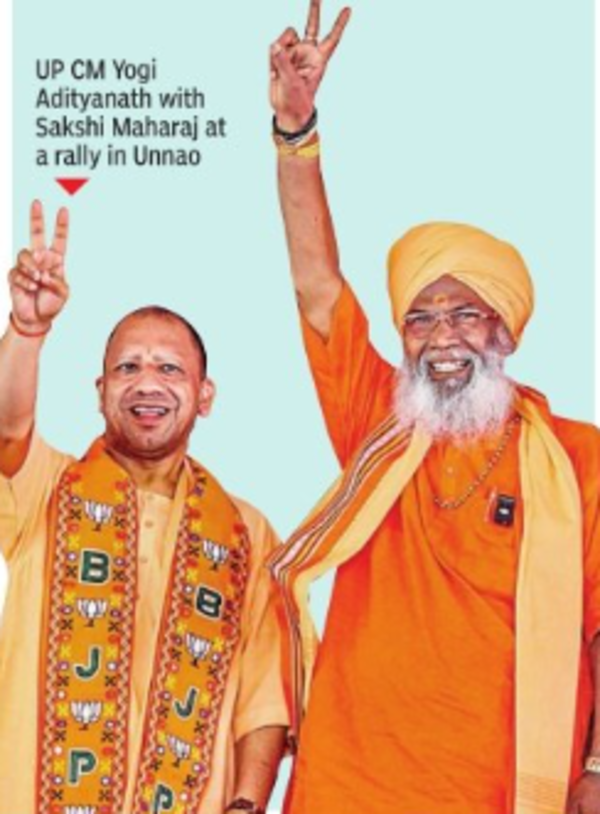For nearly two decades from 2002, Sengar held sway over the political fortunes of the region, navigating the shifting sands of political allegiance with consummate skill.From his humble beginnings in Congress to his eventual ascent to BJP via stints in BSP and SP, Sengar’s trajectory was marked by ambition and opportunism. Yet, his reign was abruptly cut short by allegations of rape, a scandal that sent shockwaves through the establishment and shattered the illusions of invincibility that once surrounded him.
Sengar’s political career came to an abrupt halt in 2018 when he faced allegations of raping a 16-year-old. The CBI arrested him, and BJP expelled him. In 2019, Delhi High Court convicted him of rape, along with framing the rape survivor’s father in an illegal firearms case, resulting in his death in judicial custody, and conspiring in an accident case involving the survivor. In Feb 2020, he lost his assembly membership. His brother, Atul Singh, a local strongman, was also incarcerated for his involvement in the case.
Operating from their opulent white bungalow nestled in the serene confines of Makhi village in Unnao, the Sengar brothers held sway. Their residence overlooks Virendra Singh Shiksha Niketan Inter College, named after Sengar’s grandfather. The locality falls under the Safipur reserved assembly constituency, represented by BJP MLA Bamba Lal Diwakar.
In the same area lies the modest house of the rape survivor, continuously guarded by armed security personnel on court orders. While the girl and her mother relocated to Delhi, her elder sister, who still lives here, bitterly recounts, “He ruined us. We couldn’t even perform the ‘terhavi (last rites)’ of our father. Who is responsible for the situation we are in? Sengar may be in jail, but his ‘rasookh’ (influence) hasn’t waned.”
Locals harbour a lingering sense of suspicion surrounding the entire controversy. “Vidhayak ji had bhaukal (influence). But he always remained a visible presence among the people. What occurred is profoundly unfortunate,” says Sonu Sharma, who operates a taxi service in Unnao.
About 50km away lies Bangarmau, the community holds its own perceptions of Sengar. “He had his own system, his network at the grassroots level. He appeared to rely little on any party organisation. He won elections based on his individual prowess,” observes Umesh Kumar, a tea seller.
As Sengar languishes behind bars, a new chapter in Unnao’s political saga unfolds. Leading the charge is Swami Sachchidanand Hari Sakshi Maharaj, a Lodh OBC whose ambitions know no bounds. Following his re-election in 2019, it came as no surprise that Sakshi Maharaj (68) paid a visit to Sengar, then confined in Sitapur jail, to express his gratitude for what he termed as “support”. A local from the Kishori Kheda locality offers a wry commentary on the situation — “It’s like a tale of sadhu aur shaitan (saint and sinner).”

“The tale of Unnao is one of contrasts,” observes a local resident, reflecting on the intricate dynamics that shape the region’s political landscape. “On one hand, we have the shadow of Sengar looming large, a reminder of past misdeeds and broken promises. On the other, we have the aspirations of politicians like Sakshi, who seek to chart a new course for Unnao’s future.”
However, standing in Sakshi’s path is SP’s Annu Tandon, a familiar face in Unnao’s political circles with a deep-rooted connection to the constituency. Armed with a nuanced understanding of the region’s pulse and a relentless commitment to change, Tandon emerges as a beacon of hope for those disillusioned by the spectre of Sengar’s legacy.
“Unnao holds a special place in my heart,” declares Tandon, her voice resonating with conviction as she addresses a gathering of supporters. “I understand the hopes and aspirations of the people, and I am committed to fighting for their rights and dignity.”
As candidates traverse the length and breadth of Unnao, their messages resonate with the hopes and fears of a populace yearning for change. From promises of economic development to pledges of social justice, each contender seeks to capture the imagination of voters and secure their allegiance.
For Sakshi, the Lodh community holds the key to electoral success, with his slogan “Dhai-lakh Lodhi, baaki saare Modi (2.5 lakh of us are Lodhi, the rest are for Modi)” encapsulating his strategy to consolidate support within the community. With the backing of the Lodhs, Sakshi Maharaj hopes to ride the wave of Modi’s popularity to victory once again.
However, Tandon remains undeterred by the formidable challenge. With a campaign focused on grassroots mobilisation and community outreach, Tandon seeks to forge a coalition of support across caste and class lines. By tapping into the collective aspirations of Unnao’s diverse populace, Tandon aims to emerge victorious and usher in a new era of inclusive governance.
On Monday, as voters head to cast their votes, Unnao’s fate will be decided by the collective will of its people. With each vote serving as a testament to the hopes of a community united in desire for change, Sengar’s legacy will fade into obscurity, replaced by the indomitable spirit of a populace determined to shape its own destiny.
